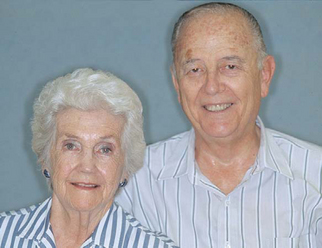CHAPTER 9 Oral Challenges of the Mature Person
Geriatric Dentistry
People are living longer than ever before in the history of mankind. This increased longevity has been related to excellent preventive and therapeutic medical care, public education about health, improved diet, exercise, and a reduction in smoking and alcohol consumption. Many people are living into their eighties and nineties with good health and with the ability to live their lives in a near normal manner (Fig. 9.1). But, just as 60,000 miles on your automobile tires significantly wears them, 80 years of life takes its toll on your mouth. What challenges can you expect in your oral condition as you pass into the mature years of life? This chapter describes and demonstrates numerous oral conditions of the mature person. You may not have all of these conditions, but you will have some of them.
ORAL HYGIENE DIFFICULTY
The most common malady of the mature years is arthritis. How does arthritis influence oral health? A person with painful arthritic hands finds it difficult to clean his or her mouth to the meticulous level that was possible in younger years. What is the significance of inadequate oral hygiene? Dental plaque and tartar accumulations cause increased dental caries (decay) (p. 167) and periodontal disease (p. 129). If you have more difficulty cleaning your mouth than you did when you were younger, it is suggested that you ask your dentist or hygienist to suggest a mechanical toothbrush for you, and that you change your routine visits to the dentist from the standard 6-month intervals to 3-month intervals. More frequent visits will cost you more preventive dollars, but you will have less tooth and supporting structure destruction and less expense for repair (see Chapter 19).
DIET
As persons move into the mature years, become more physically debilitated, and lose a few teeth, they often elect to eat softer foods. These foods are usually sticky, sugar-containing snack foods. The result of frequently eating soft, sticky, sugar-containing snack foods is a significant increase in dental caries (decay). When such foods are consumed, they should be eaten with meals, and the mouth and teeth should be cleaned of all debris immediately after eating. This problem is especially present in nursing homes. It is suggested that when mature persons live in nursing homes, the nursing home staff persons should be instructed by the mature person’s dentist on the special oral hygiene needs of their client. Currently, dental problems are one of the most significant health challenges in nursing homes, and it is related to both poor diet and inadequate oral hygiene.
Stay updated, free dental videos. Join our Telegram channel

VIDEdental - Online dental courses



